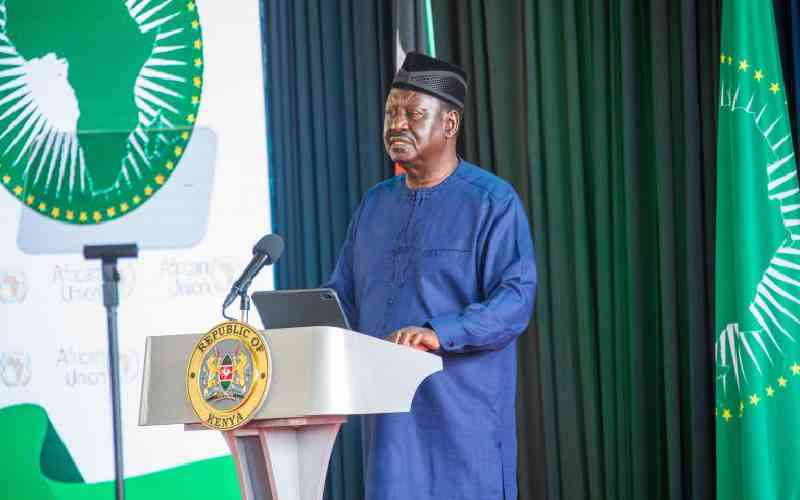There are men whose names become punctuation marks in a nation’s story. A pause in the country’s weather. A shift in its breathing. The kind of men who compel a nation to confront difficult questions about its future and the direction it wants to take. Raila Amolo Odinga was one of those men.
Across Kenya, he will be remembered as a central figure in the struggle for pluralism and constitutionalism. Across the wider region, he will be remembered for his insistence that democracy is not a seasonal posture, but a sustained public ethic. In Somaliland, however, his legacy carries an additional dimension. He was one of the few senior African leaders who was willing to treat our case as a question of justice and political honesty.
For decades, the question of Somaliland’s sovereignty has hovered on the margins of continental diplomacy, recognised in private but avoided in public. Many leaders have preferred caution over clarity, waiting for consensus before finding their voice. A hedging and ‘wait and see’ diplomacy of sorts.
Raila was different. He saw Somaliland as a legitimate reality seeking its rightful place within the continental fold. A society that had earned its place through order, democratic practice, and peace built from within.
Follow The Standard
channel
on WhatsApp
And when the Somaliland Mission in Nairobi came under scrutiny, questioned, misrepresented, and at times unfairly politicised, he did not turn away. Instead, he extended political hospitality and chose to openly engage with us, and in dignity. He listened, understood, and treated the Mission with the respect due to a people’s legitimate pursuit of recognition. The loneliest stretch of leadership is when the world has not yet caught up to the principle you are defending. And still, he walked.
When Raila met with Somaliland’s President Abdirahman Mohamed Abdullahi in Nairobi in June this year, he reaffirmed that Somaliland’s pursuit of recognition is anchored in principles the continent has already endorsed: Democratic legitimacy, stability earned through institution-building, and the sovereign right of people to determine their own political future. He understood that recognition is not a favour bestowed by powerful capitals, but a legal and historical outcome rooted in evidence. He also understood, perhaps more acutely than most, that the Horn of Africa cannot build stability by overlooking its truths.
For Somaliland, those truths are lived daily. We are constructing a state grounded in institutional discipline, free elections, civil liberties, and the steady work of public service delivery. We have no illusions about the complexity of regional politics. We know the cost of being misunderstood, and the weight of operating outside formal recognition frameworks. But we also know that a state’s legitimacy is first tested at home, and on that measure, we stand on firm ground.
It is not an easy journey, but it is one we have deliberately chosen. Our footprint is expanding from Nairobi to Addis Ababa, from the Gulf to western nations, including the United States of America, as we engage the world through dialogue and shared purpose. We are investing in ports, trade corridors, and digital connectivity; in the arts and media, all tools through which a nation tells its story and shapes how it is seen. Each of these steps, however modest, is part of a larger effort to claim our place in the community of nations through honest work. To Raila Odinga, Somaliland extends its gratitude. Thank you for your fairness, for your willingness to listen, and for your belief that Africa’s strength lies in its diversity.
Dr Mohamed is ambassador of the Republic of Somaliland to Kenya: [email protected]
Follow The Standard
channel
on WhatsApp
By Mohamed A Omar


